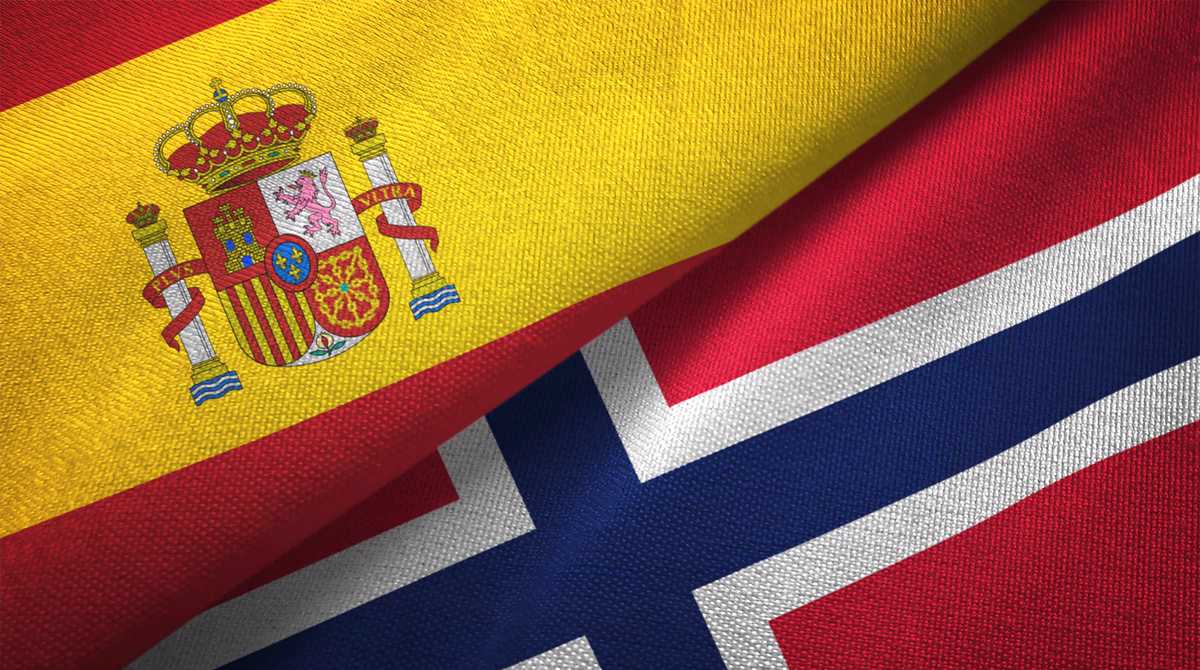The Week in Alternative Fuels
Companies from a couple of European nations made waves this week. They have gone big on developing ship and port tech that can reduce emissions towards upcoming EU reduction targets.
 PHOTO: The flags of Spain and Norway. Getty Images
PHOTO: The flags of Spain and Norway. Getty Images
FuelEU Maritime is set to become law next month. In light of this, classification society ClassNK has clarified the consequences of non-compliance for shipowners and operators. Ships that fail to comply with the regulation's greenhouse gas (GHG) intensity reduction targets for two or more years in a row could be barred from entering any EU port, ClassNK warned.
Meanwhile, Norway stood out among its European countries this week, with several Norwegian companies stepping up their efforts to reduce marine GHG emissions. Norway will be subject to the FuelEU Maritime regulation as a member of the European Economic Area (EEA) under the European Free Trade Association.
Shipping companies OSM Thome and Pherousa Green Shipping (PGS) will build six ammonia-fuelled bulk carriers. These vessels will be equipped with proton exchange membrane (PEM) fuel cells that can be powered by hydrogen cracked from ammonia onboard the vessels.
Ferry operator Torghatten Nord will buy green hydrogen from hydrogen producer GreenH to power its ferries from 2025. Torghatten Nord has ordered two new hydrogen-powered vessels and will convert two existing LNG ferries to run on hydrogen by October 2025. The ferries will operate along the Vestfjorden route, which is a 155-kilometre-long fjord off the northwestern coast of Norway.
Norwegian electrical equipment maker Blueday Technology will install shore power at the Risavika terminal at the Port of Stavanger, one of Norway's largest cruise ports. According to Blueday Technology, the shore power facility will provide ships with "clean energy" to reduce carbon emissions during port operations.
Cepsa Marine Fuels brought Spain into the spotlight this week, alongside Norway. The Spanish integrated oil company and marine fuel supplier will offer biofuel blends in Barcelona and other Spanish ports, a spokesperson for the company told ENGINE. It already supplies blends of up to 24% biofuel (B24) for bunkering by tanker and barge in Algeciras and Huelva. It will further expand its biofuel deliveries to other ports in Spain by trucks, the spokesperson said.
By Konica Bhatt
Here is our selection of top five alternative fuels stories from this week:
ClassNK explains penalties for non-compliance with FuelEU Maritime
OSM Thome and Pherousa order ammonia-powered bulk carriers with hydrogen fuel cells
Norwegian duo will power ferries on Norway's Vestfjorden route with green hydrogen
Port of Stavanger to install shore power at Risavika terminal
Cepsa to offer biofuel blends in Barcelona and other Spanish ports






